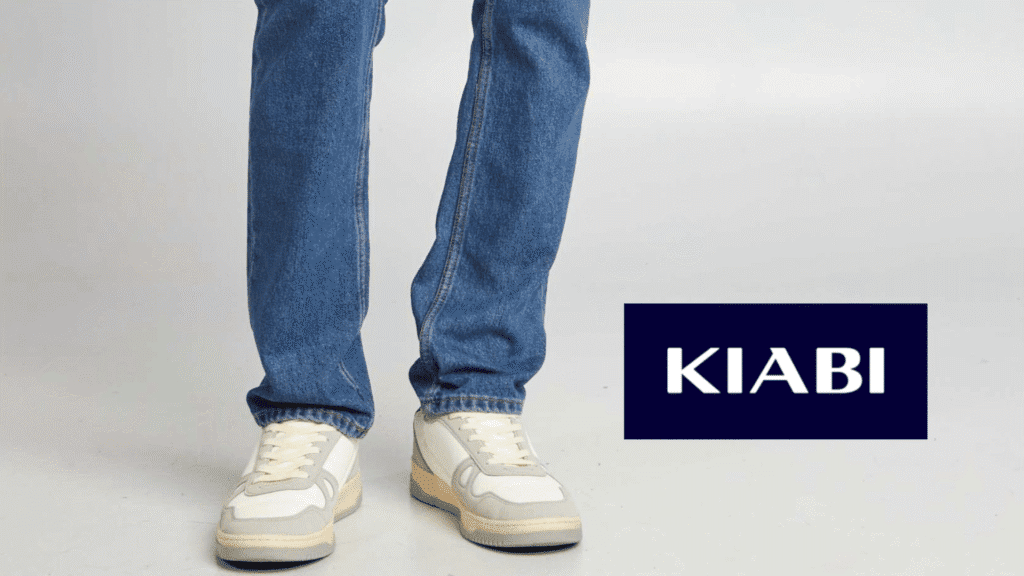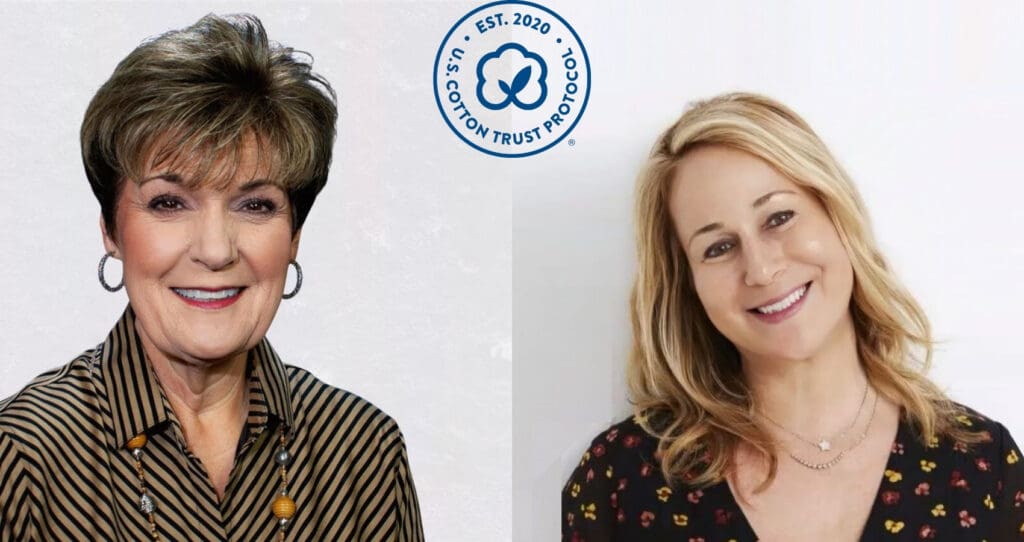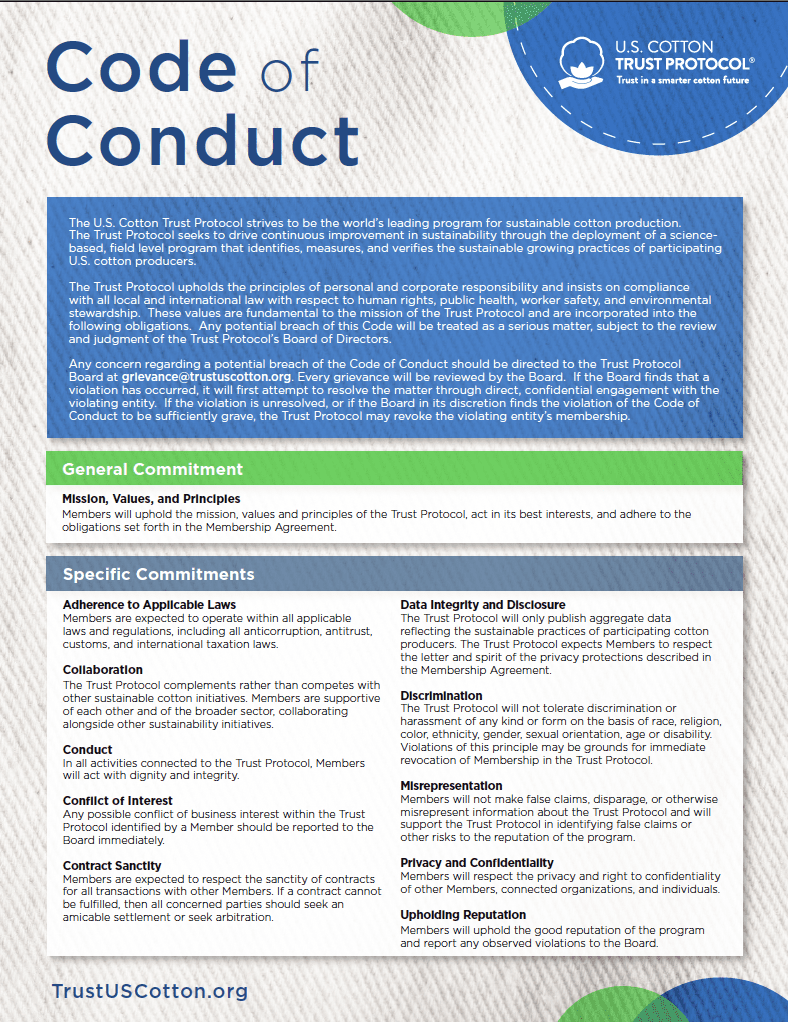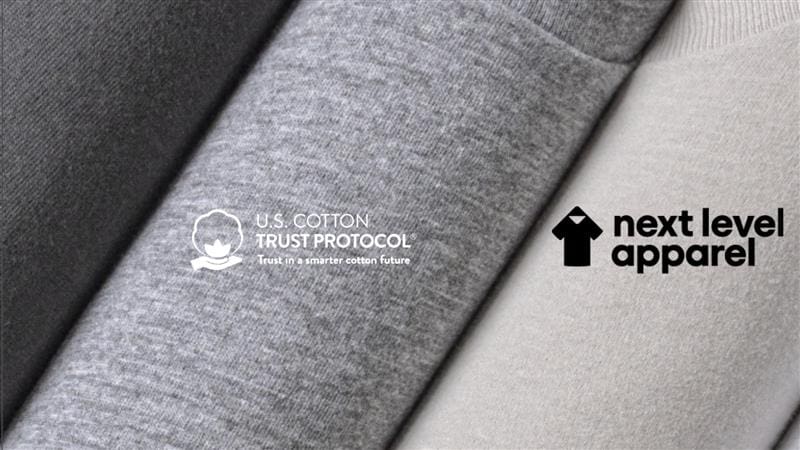In 2023, KIABI became the first European brand to join the U.S. Cotton Trust Protocol. The move was part of the French retail giant’s commitment to sustainable sourcing and a broader push towards positive social and environmental change across the fashion industry. Two years in, KIABI is leveraging their membership to work towards ambitious sustainability goals. The retailer also joined the program’s Board of Directors in 2024.
A Transformative Vision for 2035 and Beyond
As a brand, KIABI strives to benefit the families that make up their customer base, promising to make life easier by making everyday sustainable living more accessible to all. Practically, this means integrating environmental and social concerns into every facet of the business, efforts which are outlined in their Vision 2035. The organization’s transformation has included assessing and improving environmental impact across 16 focal areas that are relevant for their supply chain, including access to raw materials, traceability, working conditions, water consumption, and land use. Corresponding KPI’s were further identified for each topic.
Prioritizing Sustainable Raw Materials
A central pillar of KIABI’s Vision 2035 is a commitment to sustainable sourcing; the retailer aims for 100% of its products to contain a majority of sustainable fibers by 2025. This goal puts cotton front and center, as the natural fiber represents about 60% of the tonnage of raw materials used for KIABI’s finished products. A critical force driving progress in this area is the organization’s Materials team, which was created ten years ago to gain better visibility into pricing, production lead time, yarn and fabric quality, and cotton origins, shouldering more responsibility for sourcing instead of exclusively relying on vendors. The team’s informed sourcing decisions account for how a fiber was produced, its environmental footprint, whether its origin can be authenticated, and whether it can be tracked into a finished product.
The U.S. Cotton Trust Protocol enables brand and retailer members like KIABI to track two types of fibers through their supply chain:
- U.S. Cotton, which is recognized for its consistency, low contamination rate, technological advancement, and great fiber quality that enables lower waste during the rest of the production process
- Protocol Cotton, which is grown exclusively by Trust Protocol growers. The Trust Protocol provides brand and retailer members with aggregated data around on-farm practices and key sustainability metrics like water use efficiency and land use.
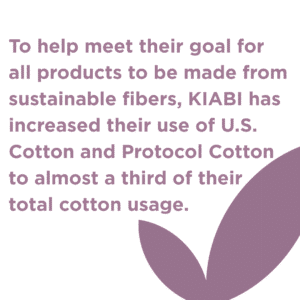
To help meet their goal for all products to be made from sustainable fibers, KIABI has increased their use of U.S. Cotton and Protocol Cotton to almost a third of their total cotton usage. These strategic shifts will also contribute to improving Scope 3 emissions, another key objective under Vision 2035. In their 2023 report, the retailer stated that raw materials used in their products and packaging accounted for 21% of their GHG emissions. Updates on progress made towards Scope 3 emission reductions as well as their 100% sustainable fiber goal are expected in the company’s 2024 reporting.
Unprecedented Supply Chain Traceability
KIABI’s in-depth exploration of raw material sourcing extends to verifying the origin and movement of sourced cotton through the supply chain. Such transparency has historically been challenging given the complex structure and global sprawl of textile value chains, but innovation and cross-industry collaboration have ushered in new possibilities. The Trust Protocol is the world’s first sustainable cotton fiber program to offer article-level supply chain transparency, enabling brand and retailer members like KIABI to track U.S. Cotton and Protocol Cotton into finished products.
The program’s traceability solution – the Protocol Consumption Management Solution (PCMS) – provides the retailer with data-driven insights on every stage of production in their cotton supply chain. The PCMS, which captures detailed transaction data and maintains a fiber inventory, empowers KIABI to make informed decisions, build trust with stakeholders, and demonstrate their commitment to sustainability and responsible sourcing. As they have exponentially scaled the number of products tracked through the platform, KIABI’s teams have been able to identify more of the vendors that supply their suppliers, broadening their understanding of their cotton supply chain.

Precision Reporting and Assessment of Environmental Impact
Reporting the organization’s environmental footprint is critical for KIABI to drive continuous improvement and verify progress towards established goals. Transparency and accountability are essential in the context of global regulatory scrutiny and pressure from consumers who are increasingly conscious of the effects of their purchasing decisions on their own health and the world around them. To ensure the credibility and precision of impact assessments, KIABI is taking a data-driven approach that prioritizes independent, third-party verification.
The Trust Protocol shares this approach, providing brand and retailer members with aggregated data around the production of Protocol Cotton. Members access extensive insights through the program’s Annual Report as well as a member-exclusive Data Report. The data, which is validated through third-party verification, can inform precise science-based targets for improvement, credible Corporate Sustainability Reporting Directive (CSRD) benchmarking, and robust Scope 3 Greenhouse Gas reporting with respect to cotton tracked through the PCMS. KIABI’s Raw Materials Leader, Virginie Cayzeele commented that, “the U.S. Cotton Trust Protocol can provide environmental impact data, which is critical for us to make strategic decisions and monitor our impact.”
Looking to the Next Chapter
KIABI and the Trust Protocol share more than a commitment to building resilience and sustainability in the cotton supply chain. Both organizations recognize the importance of continuous improvement. Shaping a more responsible, efficient textile industry demands long-term commitments and dedicated collaboration, especially in a dynamic legislative and geopolitical climate.
With this in mind, Virginie Cayzeele took an advisory position on the Trust Protocol’s Board of Directors last year. “Joining the Board of Directors enables us to be at the heart of the reactor,” she explained, “working together with the Trust Protocol team, cotton producers, academics, and other brands to bring about lasting change.” As cotton remains a staple for consumers, manufacturers, and brands, prioritizing responsible sourcing, fiber traceability, and improved access to environmental data can help retailers mitigate risk and make progress towards their sustainability goals.

